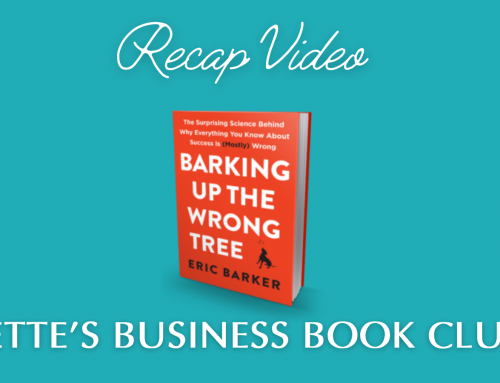For July, we read and discussed the book Fanocracy: Turning Fans into Customers and Customers into Fans by David Meerman Scott.
A fan has something that interests and engages them, and they interact with others based on the interests: it’s a kind of human connection. Since interactions are so digital and online, people are hungering for interaction with other humans on a fundamental level.
Building connections with like-minded people leads to success, brings joy, and reaches people on something they are interested in can create fans, leading to fanocracy. There’s a lot of power behind a fan-centric business. It’s beyond just liking your product or service. In the digital era, you have competition everywhere. It’s essential to build relationships with customers. It’s more important than the products and the services that we sell to them.
You want to create a bond with your customers outside of your product or service. What your customers are fans of can be the foundation of creating your fanocracy in your business. A genuine interest in your customer leads from a transactional relationship to creating fans of your business.
There are different ways that you can create a fanocracy. One way is to get close. Tied to the degree of separation between people is an emotional reaction. Face-to-face interaction is going to enhance your sense of well-being and purpose.
Personal interaction is also going to build fans because it doesn’t have the coldness of online transactions. Those human interactions and the emotions between people are what helps to build fandoms. One way to build trust with customers is for them to see how you interact with their peers. It leads them to believe it’s going to be the same way when you interact with them and acts as social proof.
It’s important to step back from your product and services, and instead of forcing your customers to use it or interact with it the way you want, step back and see how your customers are using and interacting with your product. Taking a look at the consumer’s experience can result in a fan-built culture that you don’t need to create independently.
Fanocracy is about communal experiences. If they can interact with each other and share how they use your product or service, individual customers can help grow the fanocracy more than you try to grow it on your own as the creator.
When you create a product or service, you can’t control the opinions of those who might buy from you. A way to help make raving fans is with gifts. By giving gifts, you are creating fans and developing fanocracy. And these gifts have to be free and not used for coercion. To do that, you need to create great content or products and give it freely. Donations can also be made as a charitable act, creating fans through good deeds.
Build a brand identity for your business. That way, it’s more than just the product that it sells. When customers take ownership of the brands they love, they become part of the brand’s identity, and the brand can also become a type of status symbol. Brand affinity develops at a relatively young age. When kids and adults are interacting with brands and become fans of them, they tend to stay loyal to them as they grow up, which can have long-lasting impacts on business. You can try to create a fanocracy using influencers; the best people to champion these ideas are those who believe in it the most.
When you develop fans, it reduces the barriers between the buyer and the seller. You want to reduce those barriers so much that your fans feel like they’re part of a larger family.
In the modern age, data is how we make business decisions. If you look at the data, you lose the human aspect of the interactions between buyers and sellers. This apathy can leave customers feeling like they’re just a number and not an individual. Your fan-based business needs to be human-centered. You want to grow your curiosity about customers, what they’re interested in, where they go, and what they do. It would help if you also built trust. With customers, always be truthful and consistent in everything you do- your quality, your policies, et cetera, and you can win the trust of your customers.
You also want your employees to be fans. You want them to feel that they are significant in the organization, be enthusiastic, and have passion for what you do. People passionate about what they do and where they work are excited about their work, and they tell others about it. Trust and empower employees to make their own decisions, so they feel like they are affecting the direction of the company.
Fan building can’t happen unless you are a fan of something. To be good at what you’re doing, or for your employees to be good at what they’re doing, they have to love what they’re doing. The main goal of building a fanocracy is to make your business personal.
Find the book on Amazon.
Learn more about the author and the book here.










